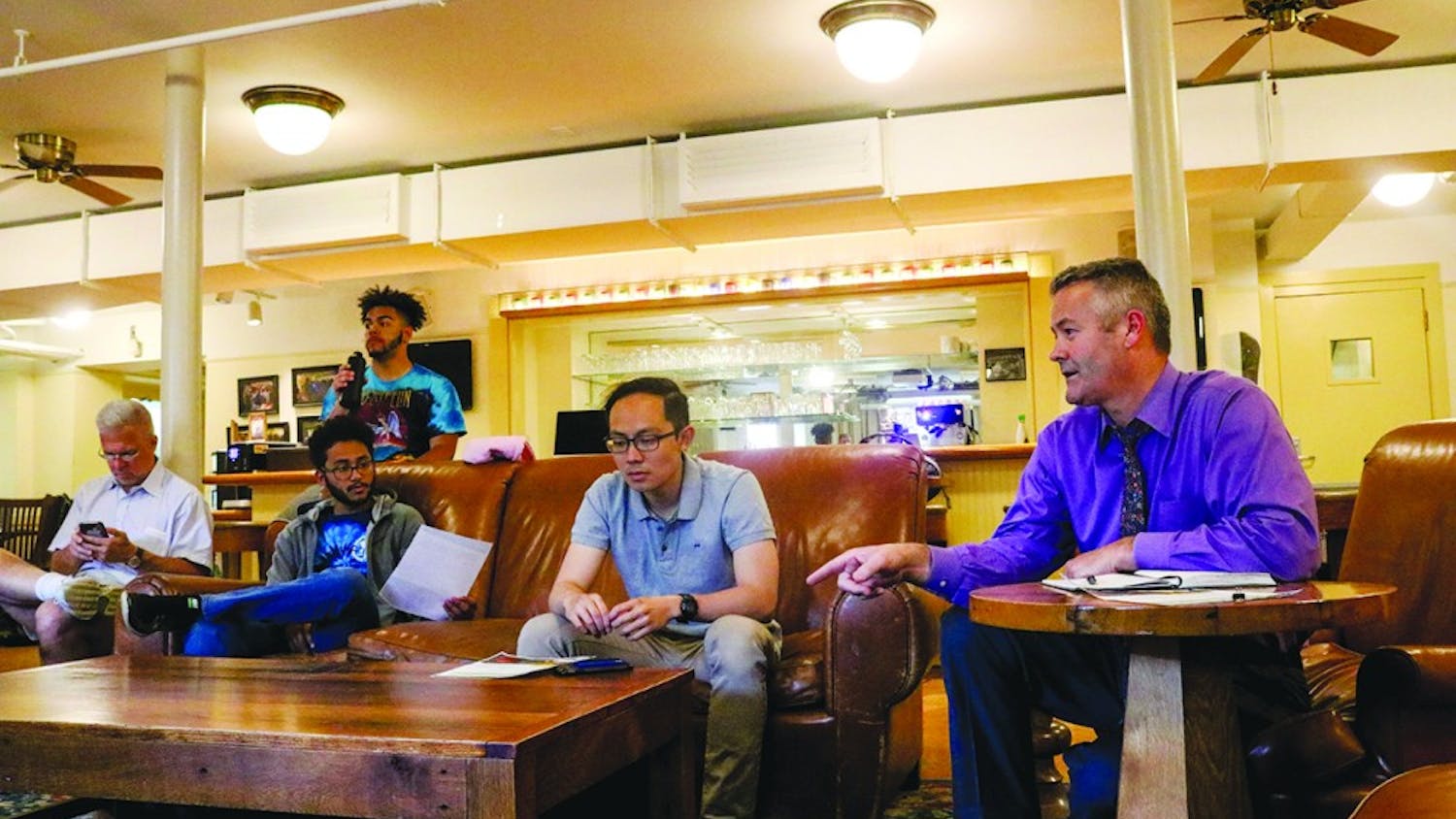Food is a needlessly controversial topic at Dartmouth. Still, there seems to be a strong consensus against the current state of campus dining. For the most part, this hostility stems from the limited food options that students find themselves left with. To be clear, this scarcity of variety should not be wholly surprising, as we are, after all, inhabiting a small New England town. However, the situation could be vastly improved in a way that benefits everyone involved. The solution is simple: Dartmouth meal plans should be usable in Hanover’s restaurants.
Extending the meal plan to Hanover’s restaurants — meaning that one could use DBA at, say, Dirt Cowboy — would serve to mollify student concerns over dining options. Meals would no longer be restricted to the Class of ’53 Commons, the Collis Café or the Courtyard Café. Many students desire to escape from Dartmouth Dining Services. This is made clear by the number of people who spend half an hour waiting in a queue for KAF. Extending the meal plan would give students a greater ability to choose off-campus dining and an easy escape route from cafeteria-style food.
However, Dartmouth can only expect this solution to have measurable benefits for student life or the College if it increases traffic at the town’s restaurants substantially. This would occur because there is an important difference in student perceptions of the purpose of DBA and that of actual currency. To many undergraduates, DBA is deemed the currency of necessity that students are forced to use while on campus. The notion of DBA is also inextricably linked to food. These students frequently view the American dollar, on the other hand, as firmly grounded in reality, with an intrinsic value that is never taken for granted. It is seen as the currency of luxury, of treating oneself. Students are thereby less likely to eat in town when each off-campus meal is considered a splurge. Allowing DBA use in Hanover would normalize student perceptions, increasing foot-traffic. This in turn would allow the College to capitalize on the potential benefits of allowing students to use their dining dollars outside of dining halls.
With students forced to lock up large sums of money in their DBA, it seems only fair to offer them as much variety as possible and allow them to spend their DBA wherever they wish. Many students finish each term with substantial surpluses of DBA which ultimately go to waste. This problem could be avoided by presenting students with more alluring options. Opening up the town to students would give them more control over the money Dartmouth orders them to convert to DBA.
A large increase in students spending their money in town could also improve Hanover’s local economy. The town’s restaurants would be able to fully exploit the great untapped resource of Dartmouth’s large student body. In the last few years, a number of local staples, such as EBA’s, the Canoe Club and the Orient have had to close their doors. The influx of capital from Dartmouth students would help to preserve the town’s remaining landmarks and improve the sorry state of the High Street.
The College itself has reason to support this idea. Even with the student body at its current size, the school’s facilities appear to be under significant strain. There are constantly extensive queues leading from all of the on-campus dining options. Although this is one factor that led the current administration to firmly reject proposals for expansion, future administrations may not share the same view. If the school ends up expanding the size of the student population during future administrations, the situation will only become more untenable. Although it is not a permanent solution, a degree of outsourcing is already necessary to help the school function more smoothly. Hanover can help ease the pressure on Dartmouth Dining Services.
Some may see this solution as a pipe dream —DDS is not known for its fondness of competition. DDS can be expected to oppose this proposal to the extent that it exposes them to competition that can harm their bottom line. However, there are few downsides to diversifying the dining options available to Dartmouth students. It is an idea that has already been tried by a number of universities. Vanderbilt, for instance, allows its undergraduates to eat at select restaurants throughout Nashville. Students generally enjoy the program and it has run successfully for at least ten months now. Dartmouth should expect to enjoy similar benefits if it could institute a similar program.
Dartmouth is not there yet. But if the College wants to lend some slack to its strained facilities, offer more food options and build a healthier local economy, the solution is to let the students loose on the town.



